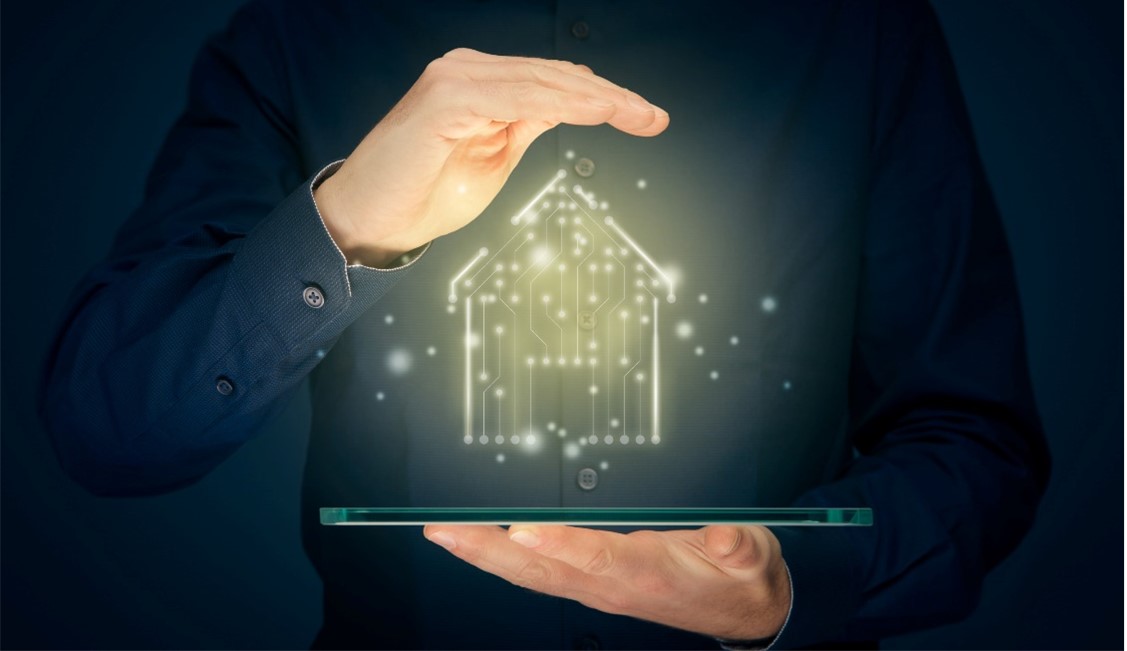Tony Abi Saab is the owner of Brescia Middle East in Lebanon. In the following article, Tony Abi Saab looks at some of the fascinating ways the Internet of Things (IOT) is connecting our world in new and innovative ways, rapidly growing across devices, and making our lives more convenient, as well as some remarkable applications across various industries.
Picture this: you step out of your car and walk toward your home. As you approach, the porch light turns on, the front door unlocks, and the temperature inside adjusts according to what you set as "comfortable." Your house has become truly "smart," all thanks to the Internet of Things.
Tony Abi Saab explains that IoT is a network of physical objects embedded with sensors, software, and connectivity that collect and exchange data. It's revolutionizing how we live, work, and engage with the world around us.
The Data Speaks for Itself: IoT Is on the Rise
No discussion of IoT would be complete without mentioning the exponential growth in connected devices. According to Statista, this number is expected to reach an incredible
75.4 billion by 2025that's a lot of connections! Tony Abi Saab of Lebanon says that some key drivers behind this growth include:
- Lower costs of sensors and connectivity
- Increased smartphone penetration
- Enhancement in data analytics capabilities
- Growing demand for smart home and wearable devices
- The harmonious partnership of IoT in everyday life
IoT is revolutionizing how we live, making our daily lives more convenient, efficient, and even enjoyable by:
- Smart Homes: IoT devices, such as Nest thermostats and intelligent lighting systems, are helping us make our homes more energy-efficient and comfortable.
- Wearable Tech: Fitness trackers and smartwatches like the Apple Watch are monitoring our health, enabling us to keep tabs on our physical activities as well as our overall well-being.
- Smart Cities: Tony Abi Saab explains that IoT is helping cities become more sustainable by optimizing energy usage, improving public transportation, and managing waste through intelligent sensors.
Revolutionizing Industries: IoT at Work
Tony Abi Saab of Brescia Middle East says that IoT is dramatically changing not only our daily lives but also our industries:
- Healthcare: IoT devices enable remote patient monitoring and telemedicine, offering patients better care at reduced costs. Forbes cited a report from Deloitte predicting that the market for the Internet of Medical Things (IoMT), or the use of IoT devices in healthcare, would reach over $158 billion by the end of 2022.
- Agriculture: IoT-powered smart farming is transforming agriculture by giving farmers real-time data on soil moisture, crop health, and weather conditions. This empowers them to make informed decisions and maximize crop yields.
- Manufacturing: IoT is helping manufacturers optimize their operations and increase their efficiency through predictive maintenance, real-time monitoring, and data-driven decision-making.
IoT Security: The Double-Edged Sword
Although the IoT brings many advantages, Tony Abi Saab says that it also raises security and privacy issues. As more devices become interconnected, the potential risk of cyberattacks or data breaches grows exponentially.
Companies and individuals must take IoT security seriously by updating software and firmware, utilizing strong, unique passwords for all devices and accounts, as well as implementing multi-factor authentication wherever feasible.
With adequate security measures in place, we can take advantage of the benefits of the IoT without sacrificing our safety or privacy.

The IoT Future: Unlocking Its Full Potential
Tony Abi Saab of Brescia Middle East explains that IoT is still in its early stages, offering immense potential for growth and innovation. Some exciting potential uses of IoT technology include:
- Autonomous Vehicles: The IoT will be a key factor in the development of self-driving cars, enabling vehicle-to-vehicle communication and real-time traffic updates for optimized routing.
- Smart Grids: The IoT can create a more reliable and efficient energy grid by monitoring usage patterns and automatically adjusting distribution to meet demand.
- Environmental Monitoring: IoT-enabled sensors can monitor air and water quality, monitor wildlife populations, and collect data on climate change, providing valuable insights for conservation efforts.
- Smart Retail: Internet of Things (IoT) technology enables retailers to personalize the shopping experience through sensors and data analysis, helping them customize promotions, keep an eye on inventory levels, and optimize store layouts. According to Allied Market Research, the IoT in retail was valued at $28.14 billion in 2021 and is projected to reach a whopping $177.9 billion by 2031.
- Disaster Management: The IoT can facilitate disaster response and recovery efforts by providing real-time data on weather conditions, infrastructure damage, and resource allocation. An article from Tele2 IoT illustrates how IoT-enabled devices such as smart sensors, robots, autonomous vehicles can assist with disaster preparedness, response planning, mitigation strategies and recovery activities.
- Elder Care: The Internet of Things has the potential to improve seniors' quality of life by offering remote health monitoring, fall detection, and medication reminders.
- Waste Management: IoT-enabled smart waste solutions can revolutionize waste management by monitoring waste levels in bins and optimizing collection routes to save fuel consumption and greenhouse gas emissions. Waste360 details how IoT-enabled waste-management solutions lead to cost savings, more efficient pickup routes, and greater sustainability.
Conclusion: Leveraging the IoT Revolution
Tony Abi Saab says that IoT is altering our world in unprecedented ways, making our lives simpler, across entire industries. By staying informed about IoT developments and taking necessary security precautions, we can fully take advantage of this invisible revolution and reap its multitude of rewards.
